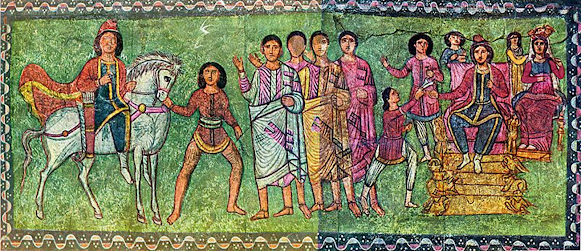Further Thoughts on Efron and Chevron
After my recent post on the titular topic, I noticed that Yehoshua 14:15 explicitly states that Chevron was originally named Kiryat Arba after Arba, father of the three main giants who lived in Chevron (Achiman, Sheshai and Talmai). That means that when Avraham was dealing with Efron in Chevron, it likely still hadn't been renamed! Which of course strengthens my suggestion that Chevron was named after Efron. I would suggest that the variant Chevron, which contains the root Chaver (חבר, friend), was chosen because it symbolized the hand of friendship that Efron had extended Avraham, and naming the city after the former was a way of showing thanks to him for that. I was also reminded of two parallels: Goren Aravnah and Shomron. Goren Aravnah or Goren A rnan (the threshing-floor of Aravnah/Arnan) was some sort of threshing compound on the top of what was to become the Temple Mount in the time of David, originally owned by a Yevusi man named Aravnah (in Shmuel) or Arnan (in Chronicl...






